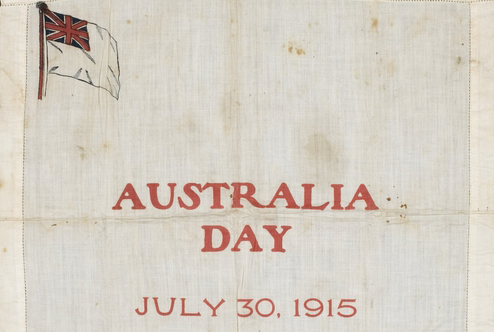‘Australia Day’, ‘Survival Day’ or ‘Invasion Day’?
Features
“Given this history of Australia Day, it is surprising why so many are fiercely attached to the idea of 26 January being the date we celebrate ‘Australia Day’ together as a nation,” says Aunty Sandra King OAM

Australians as a whole remain divided on whether the 26 January is a day to celebrate or protest or mourn. Consequently, ‘Australia Day’, ‘Survival Day’ or ‘Invasion Day’ variously brings joy or heartache.
This annual day in our national calendar increasingly brings the ‘Change the Date’ and the ‘MAY8’ (‘Mate’) campaigns into our conversations.
There are differing views of these campaigns, and any debate or discussion must be had with open minds and open hearts and truth telling about our history. Australia’s history didn’t start in 1770 or 1788. It started long before that, with evidence showing that the First Nations Peoples of Australia are the world’s oldest continuously living civilization.
Advertisement
History has proven that changing the date and name is not at all uncommon when it comes to celebrating Australia Day. The day commemorates Captain Arthur Phillip raising the British flag on a land that was already inhabited on 26 January 1788.
Due to achievements in Gallipoli in World War I, Government officials chose 30 July in 1915 to be Australia’s first official date to celebrate Australia Day. It may seem strange now that 26 January did not seem important enough to be celebrated nationally. All other states and territories had their own day of celebration and had names such as ‘First Landing Day’, ‘Foundation Day’ and ‘Anniversary Day’.
In 1931, Victoria alone celebrated 26 January and by 1935, all other states and territories joined in the celebration of this date, with New South Wales originally calling it ‘Anniversary Day’.
In 1946 all Federal and State Governments agreed to celebrate ‘Australia Day’ on 26 January, but the public holiday celebrating this day was set on the closest Monday to 26 January in order to facilitate a long weekend.
Officially, the public holiday celebrating Australia Day on 26 January was only agreed upon by all States and Territories in 1994.
Advertisement
Given this history of Australia Day, it is surprising why so many are fiercely attached to the idea of 26 January being the date we celebrate ‘Australia Day’ together as a nation.
The sad thing about this date is that many Australians believe that they are celebrating the landing of the First Fleet or Captain Cook ‘discovering’ Australia. This continual denial of the fact that the land was already ‘discovered’ and inhabited is embarrassing and frustrating.
Historically, our State and Federal Governments’ lack of support in making the teaching of the ‘true’ history of Australia compulsory in schools displays a continued denial of the importance of truth telling. The absence of education about our First Nations cultures and histories and the discriminatory policies that governed their lives foster division, ignorance and racism.
What does Australia Day mean to me, as a First Nations Christian woman?
Sadly, it is a day that I cannot celebrate. Not celebrating this day does not make me a racist or a radical, but from the perspective of a First Nations Christian woman, I believe that the denial of Australia’s true history undermines unity, acceptance and Reconciliation.
Australia Day must be a day where all Australians (including our First Nations Peoples) should feel free to celebrate. It should be a day of learning, unification and growing as a nation. It should not be a day where people feel excluded from, ashamed of or guilty about their history.
Changing the date to celebrate this beautiful country should include all people of different ethnicities. By acknowledging and accepting Australia’s true history, we can truly show that we are maturing as a nation.





